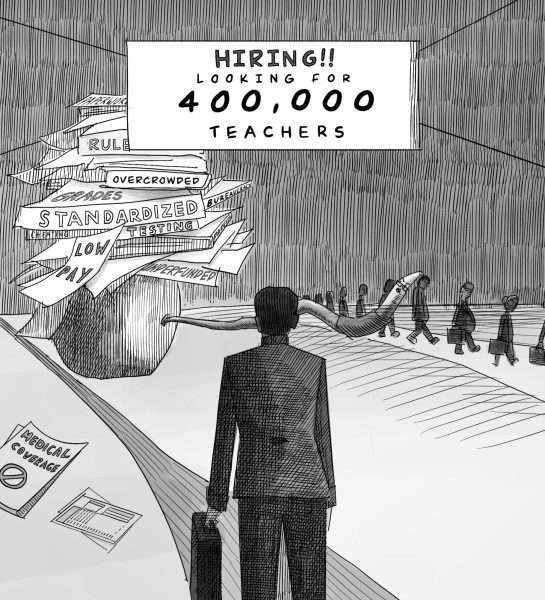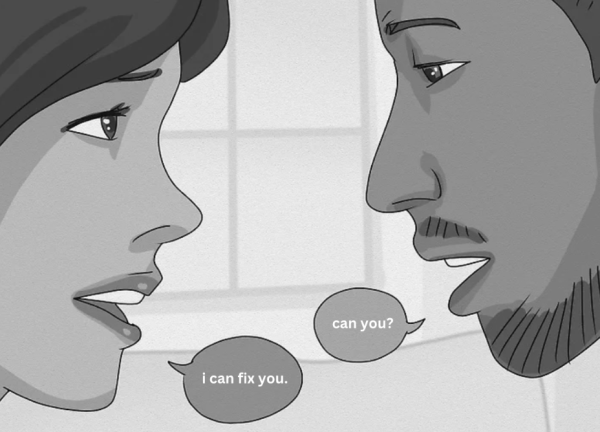The Necessity of Political Discussions in the Classroom

As the United States grows increasingly politically polarized, many classrooms have started to lower the number of political conversations they have. Some legislators have even proposed ending them permanently, drafting bills that would fire teachers for mentioning “controversial issues” in their classroom. While this is something that has divided many across the nation, it is still important to talk about political issues in classrooms. Politics should be involved in classroom discussions because they help increase students’ involvement in political processes, and also let them connect historical subject matter to more modern examples.
Firstly, discussing politics in classrooms will help increase awareness about political processes amongst a growing voting base. The number of youth voters has significantly increased in America, with around 52-55% of 18-24 year olds participating in the 2020 presidential election, a significant increase from the 42-44% of people who participated in the 2016 election. With this large youth voter base, learning about candidates in class is important so students, especially those who aren’t involved in politics, can educate themselves prior to voting. This can also motivate students to participate in local elections, which are equally important, yet receive lower coverage than state or national elections. By getting informed of these elections as well, turnout could also increase for them.
For example, with political information, students who have never voted would be researching policies being proposed by each of the candidates to make informed decisions on who they support for Governor Gavin Newsom’s recall election. If a student has decided on supporting the tax increases, they can discover candidates in the race who will implement that. They will make an informed decision on who they support, further increasing voter turnout, since voters will be more enthusiastic to vote for candidates who they align with politically. Participation in democratic processes is very important and increasing it will help support everyone’s interests.
Additionally, having classroom political discussions can be beneficial by helping students connect modern-day American events to the past. Most political discussions are held in history classes, which helps students look at past events through a modern angle, making it easier for them to grasp the major events that occurred. Take Donald Trump’s impeachment trials as an example. Since presidential impeachment proceedings have rarely occurred in the past, understanding historical precedent allows students to compare and contrast, which is a very important critical thinking skill. Comparing and contrasting can show that the students are able to classify the events, which means that they have a better understanding of the events. Also, by showing the similarities between past trials and a very important and relevant issue can help students see the events in a different light, potentially increasing their interest in the subject or showing them a new viewpoint that allows them to make a more informed opinion.
Some may believe that bringing up politics in classrooms causes teachers to mold students to believe in their political values. Since teachers could lean towards a political side, their subconscious bias could push their students to think similarly. It could also stifle real debate in the classroom, since students could be uncomfortable with going against the teacher’s views. However, after hearing material covered in class, students have the opportunity to research on their own, and they should be able to tell if what is covered in class is biased or not. Additionally, having political discussions will actually build up their critical thinking skills by listening to alternative viewpoints. Through listening to other arguments, they will be able to analyze their points and claims that the opposition makes, and they can learn about a different perspective other than theirs.
Having political discussions in the classroom brings many benefits to students. It increases their involvement in democratic processes like voting, and it also helps students connect the syllabus taught in class with modern events. Politics does not have to be one imposing their views on another, and if involved right, it can strengthen discussion and debate within the classroom.







